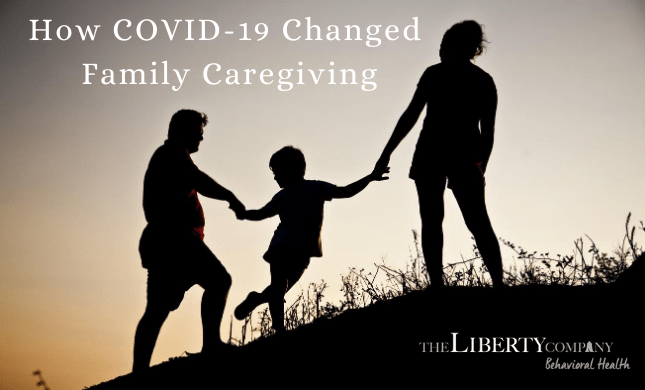Coronavirus has disrupted the lives of everyone across the world. Remote learning, working from home, mass layoffs, and more. The landscapes of hospitals, urgent cares, and all medical centers have also adjusted. There is one niche in the medical field that many don’t seem to be talking about: caregivers.
Family, professional, and all types of caregivers have had to thoroughly adjust to the “new normal”. Caregivers having to now teach from home, not having the same amount of medical help, and changes in income are just a few of the difficulties they had to face.
The Reality of Family Caregiving During COVID-19
“From the caregiver standpoint, you notice the supports you did rely on are not available. I think sometimes the average person doesn’t realize that this can also mean very rapidly having to learn medical interventions and things like that,” said psychology lecturer and licensed mental health counselor Kelly Fischer according to NPR.
Besides being a mental health professional, Fischer is a caregiver herself to her 19-year-old son who is blind and autistic. Fischer had to learn how to manage both teaching her son, working from home, and taking new precautions due to COVID-19.
Fischer also said, “I’m fortunate that I was already working from home, so that wasn’t an adjustment for me. But how do you fit in when he needs to eat, because that’s not something he can do independently. And even needing to go use the restroom.”
NPR also delved into the unique foster sibling story where the sister is the sole caregiver of her foster brother. Kristina Ortiz cares for Tim Hames (foster brother) as well as her one-year-old son. This means Kristina is in charge of bathing, medication, doctor appointments, dressing, entertainment, and more for Tim. After adjusting to being the caregiver, COVID-19 swept across the nation.
Additional Changes Family Caregivers Experience Curing the Pandemic
Emily Ransom, a caregiver to her 5-year-old son, pointed out an additional disruption due to COVID-19: in person therapy. This could be art, music, speech, or clinical therapy that is now either over Zoom or unavailable. Without repetition of therapies, the skills that Emily’s 5-year-old son learned has diminished. This can be extremely disappointing when so much effort and time has been put into learning a skill and the caregiver watches it disappear due to lack of resources.
The Effects on Family Caregivers due to COVID-19 Adjustments
Besides these external issues, caregivers often experience burn-out due to the high demand and underappreciation of their job. AARP did a study in 2017 that reported 41 million family caregivers in the US. This equals around 34 billion hours of unpaid labor which is worth $470 billion annually. Another study shows that roughly 50% of caregivers “experience significant psychological distress which can escalate to symptoms of burnout, depression and anxiety.”
This feeling of burn-out can be combated by implementing a self-care routine, sharing responsibilities in caregiving, and assistance. Due to the dangers of COVID-19, a self-care routine seems like the safest route. Additionally, it is important to spread awareness and appreciation to the selflessness, dedication, and hard work that all family caregivers put into caring for their loved ones.

